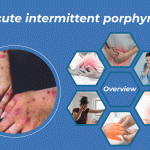Hemophilia is a rare genetic disorder characterized by the body’s inability to form blood clots effectively, leading to prolonged bleeding. This condition is primarily classified into two main types: Hemophilia A and Hemophilia B, each associated with deficiencies in specific clotting factors. Understanding these types is essential for recognizing symptoms, managing treatments, and supporting those affected.
Hemophilia A
Hemophilia A, also known as classic hemophilia, accounts for approximately 80-85% of all hemophilia cases. It is caused by a deficiency or abnormality of clotting Factor VIII, a protein crucial for blood coagulation. The genetic mutation responsible for Hemophilia A occurs on the X chromosome, making the disorder more prevalent in males, who have only one X chromosome. Females can be carriers of the gene but are less frequently affected unless they inherit the mutated gene from both parents.
Symptoms:
Individuals with Hemophilia A may experience:
- Prolonged bleeding episodes, especially after injuries or surgeries.
- Spontaneous bleeding, particularly into joints and muscles.
- Easy bruising and frequent nosebleeds.
- Blood in urine or stool.
The severity of symptoms varies, with some individuals experiencing mild symptoms that may not manifest until adulthood, while others may have severe bleeding episodes from birth.
Treatment: Treatment for Hemophilia A typically involves regular infusions of Factor VIII to prevent bleeding complications.
Advances in treatment include the use of recombinant Factor VIII, which is produced through genetic engineering, allowing for more effective management of the condition. Patients with milder forms may only require treatment during bleeding episodes, whereas those with severe Hemophilia A often need prophylactic infusions to maintain adequate clotting factor levels.
Hemophilia B
Hemophilia B, commonly referred to as Christmas disease, accounts for about 15-20% of hemophilia cases. This type is caused by a deficiency or abnormality of clotting Factor IX, also located on the X chromosome. Like Hemophilia A, it predominantly affects males, with females being carriers or affected in rare cases.
Symptoms:
The symptoms of Hemophilia B are similar to those of Hemophilia A, including:
- Prolonged bleeding after injuries or surgeries.
- Spontaneous bleeding episodes.
- Easy bruising and joint bleeding.
The severity of symptoms can also vary, with some individuals experiencing mild symptoms and others facing severe complications.
Treatment:
Treatment for Hemophilia B involves the replacement of Factor IX to restore normal clotting function. This can be achieved through infusions of recombinant Factor IX or plasma-derived products. Similar to Hemophilia A, the frequency and intensity of treatment depend on the severity of the condition.
Other Types of Hemophilia
In addition to Hemophilia A and B, there are other rarer forms of hemophilia:
- Hemophilia C: Caused by a deficiency of clotting Factor XI, this type affects both males and females equally and is less severe than A and B. It is most commonly seen in individuals of Ashkenazi Jewish descent, with a prevalence of about 1 in 100,000 people.
- Parahemophilia: This rare condition results from a deficiency of clotting Factor V, which plays a role in the clotting cascade. Symptoms and treatment strategies are similar to those of Hemophilia A and B but are less commonly recognized.
Ikris Pharma Network’s Commitment
Organizations like Ikris Pharma Network are dedicated to advancing research and treatment options for hemophilia. They focus on improving patient education, enhancing access to therapies, and supporting the development of innovative treatments that can better manage this condition.
Call to Action
Raising awareness about hemophilia and its various types is crucial for early diagnosis and effective management. Individuals experiencing symptoms of bleeding disorders should seek medical advice promptly. Additionally, support from healthcare providers, community organizations, and advocacy groups can significantly improve the quality of life for those affected by hemophilia.
What is hemophilia, and how is it classified?
Hemophilia is a rare genetic disorder that affects the body’s ability to form blood clots, leading to prolonged bleeding. It is primarily classified into two main types: Hemophilia A, caused by a deficiency in clotting Factor VIII, and Hemophilia B, due to a deficiency in clotting Factor IX.
How does Hemophilia A differ from Hemophilia B?
Hemophilia A, also known as classic hemophilia, involves a deficiency in Factor VIII, while Hemophilia B, or Christmas disease, is related to a deficiency in Factor IX. Although both types have similar symptoms, such as prolonged bleeding and easy bruising, they differ in the specific clotting factor affected.
What are the main symptoms of hemophilia?
Symptoms of hemophilia include prolonged bleeding after injuries or surgeries, spontaneous bleeding (especially in joints and muscles), easy bruising, and, in severe cases, blood in urine or stool. Symptoms vary depending on the severity of the deficiency and the type of hemophilia.
How is hemophilia treated?
Treatment for hemophilia involves replacing the deficient clotting factor. Hemophilia A patients typically receive infusions of Factor VIII, while Hemophilia B patients receive Factor IX. Recombinant forms of these factors are commonly used for effective management. Patients with severe hemophilia often require regular infusions to prevent bleeding episodes.
What role does Ikris Pharma Network play in supporting hemophilia patients?
Ikris Pharma Network is committed to advancing hemophilia treatment options by improving access to therapies and supporting patient education. Contact them today via Call/WhatsApp: +91 9310090915 to buy factor IX replacement or gene therapy.






